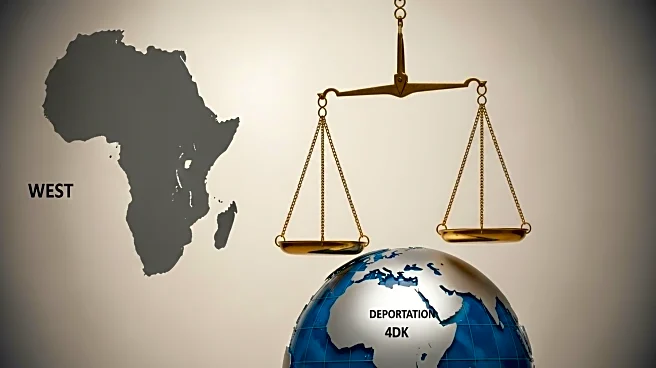What's Happening?
Lawyers representing four of the 14 West African migrants deported by the U.S. to Ghana have filed a lawsuit, claiming the men remain in Ghana and have not been returned to their home countries. This contradicts statements by Ghanaian officials who assert that all deportees have been sent home. The deportations are part of the Trump administration's strategy to send migrants to third countries, bypassing U.S. immigration laws that prevent deportations to countries where individuals may face persecution or torture. The case has drawn parallels to previous instances where the administration has been accused of circumventing legal protections for migrants.
Why It's Important?
The situation underscores the legal and ethical challenges associated with the Trump administration's immigration policies, particularly the use of third-country agreements. The deportations have sparked criticism from human rights organizations and raised concerns about the U.S.'s commitment to international human rights standards. The case highlights the potential risks faced by deportees and the broader implications for U.S. immigration policy and its impact on vulnerable populations.
What's Next?
The legal proceedings may continue as lawyers seek to challenge the deportations and advocate for the rights of the affected migrants. The U.S. government may face increased scrutiny and pressure to ensure compliance with international human rights standards. The situation could also prompt further diplomatic discussions between the U.S. and the countries involved in the third-country agreements.
Beyond the Headlines
The use of third-country agreements for deportations raises ethical and legal questions about the responsibility of nations to protect vulnerable individuals. It also highlights the broader issue of how countries balance immigration control with human rights obligations. The case may influence future immigration policies and the global discourse on migration and asylum.










